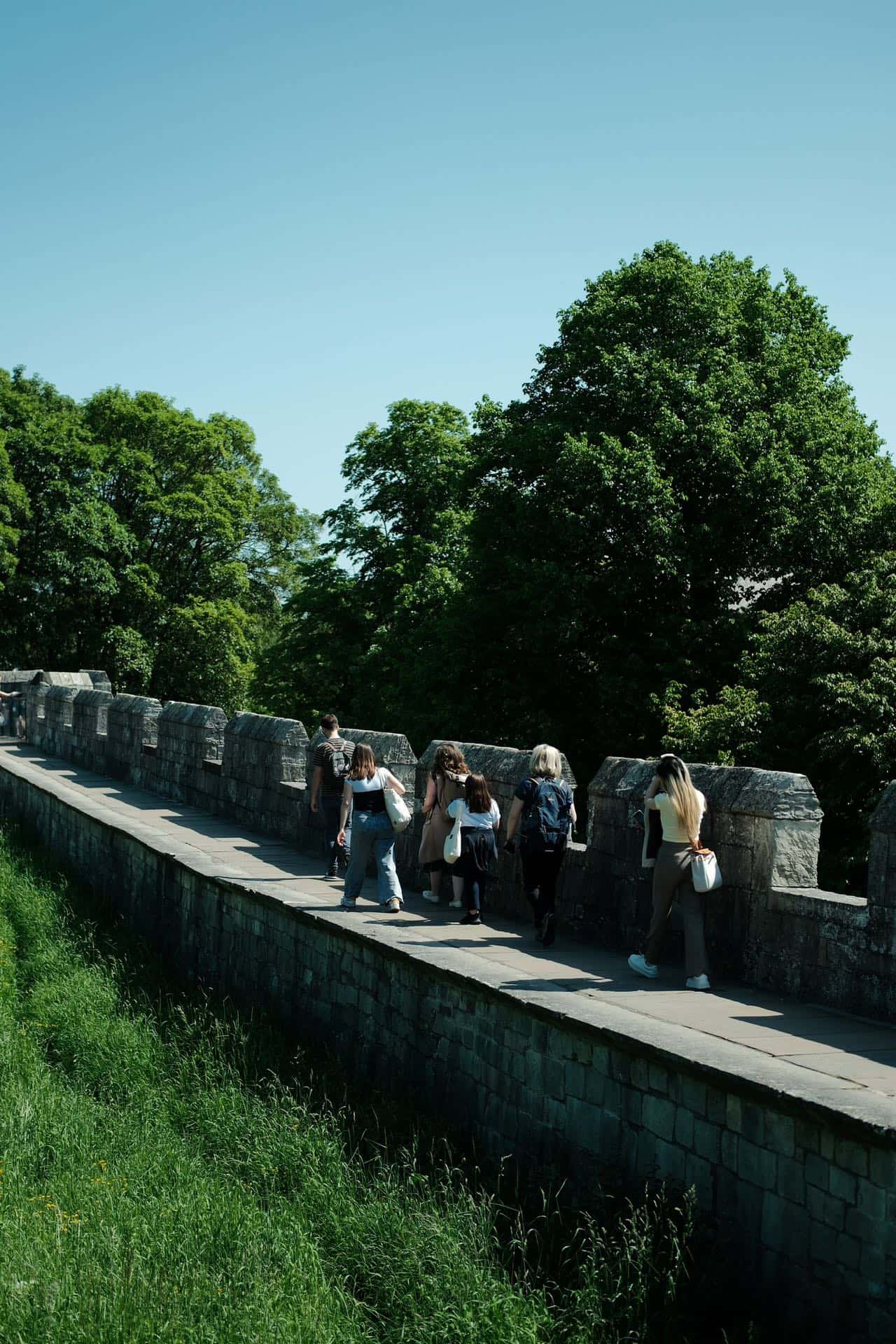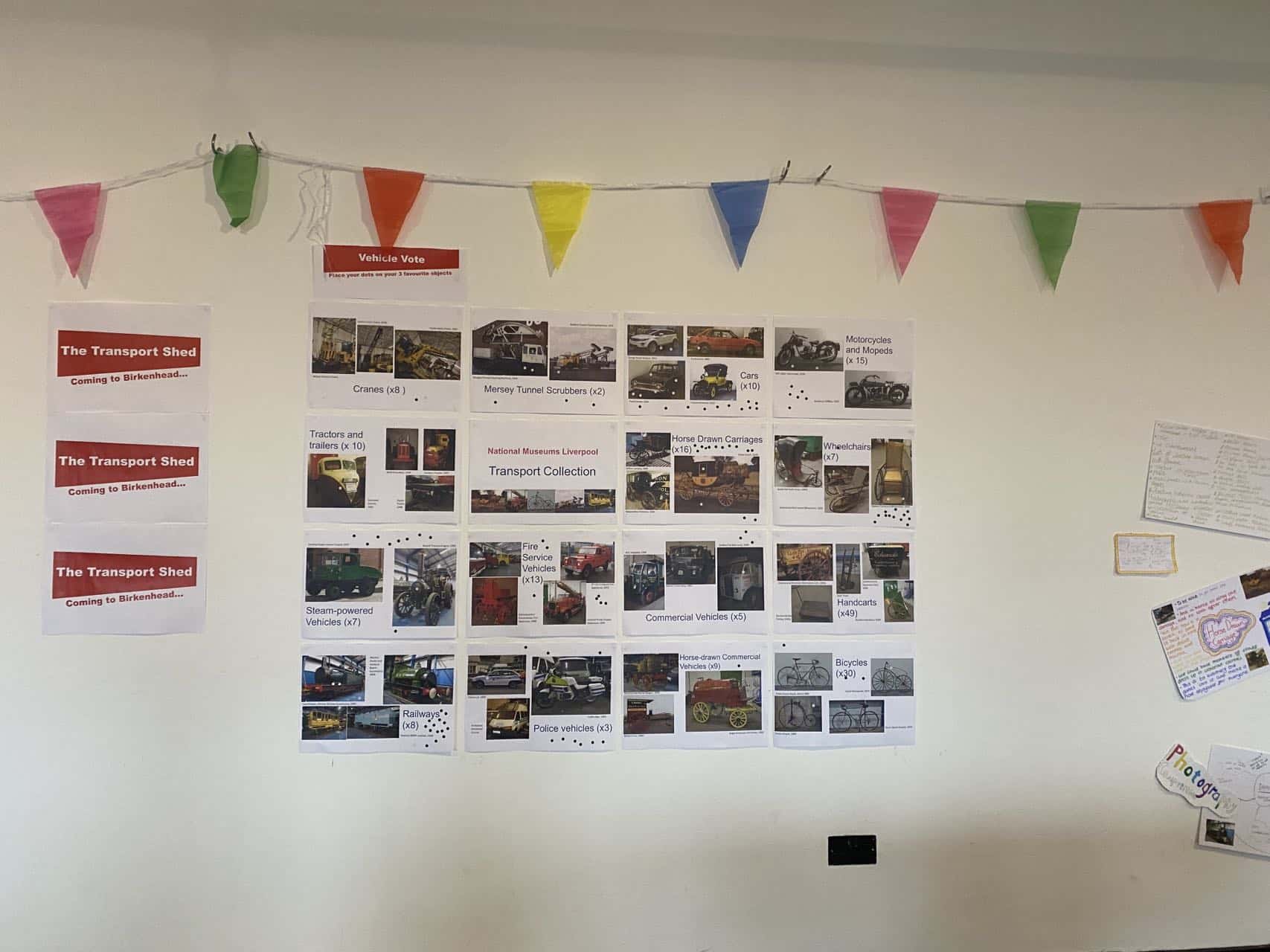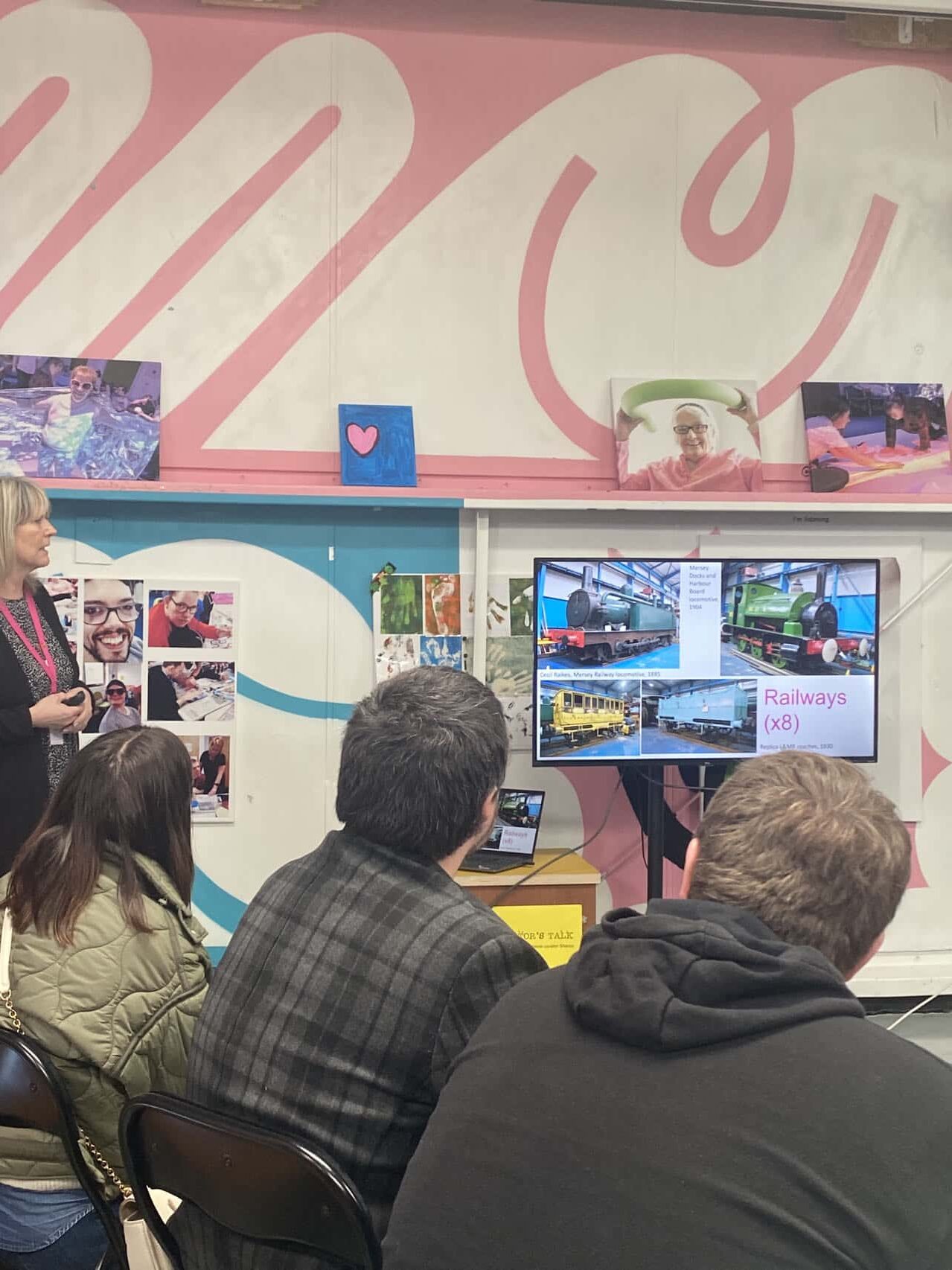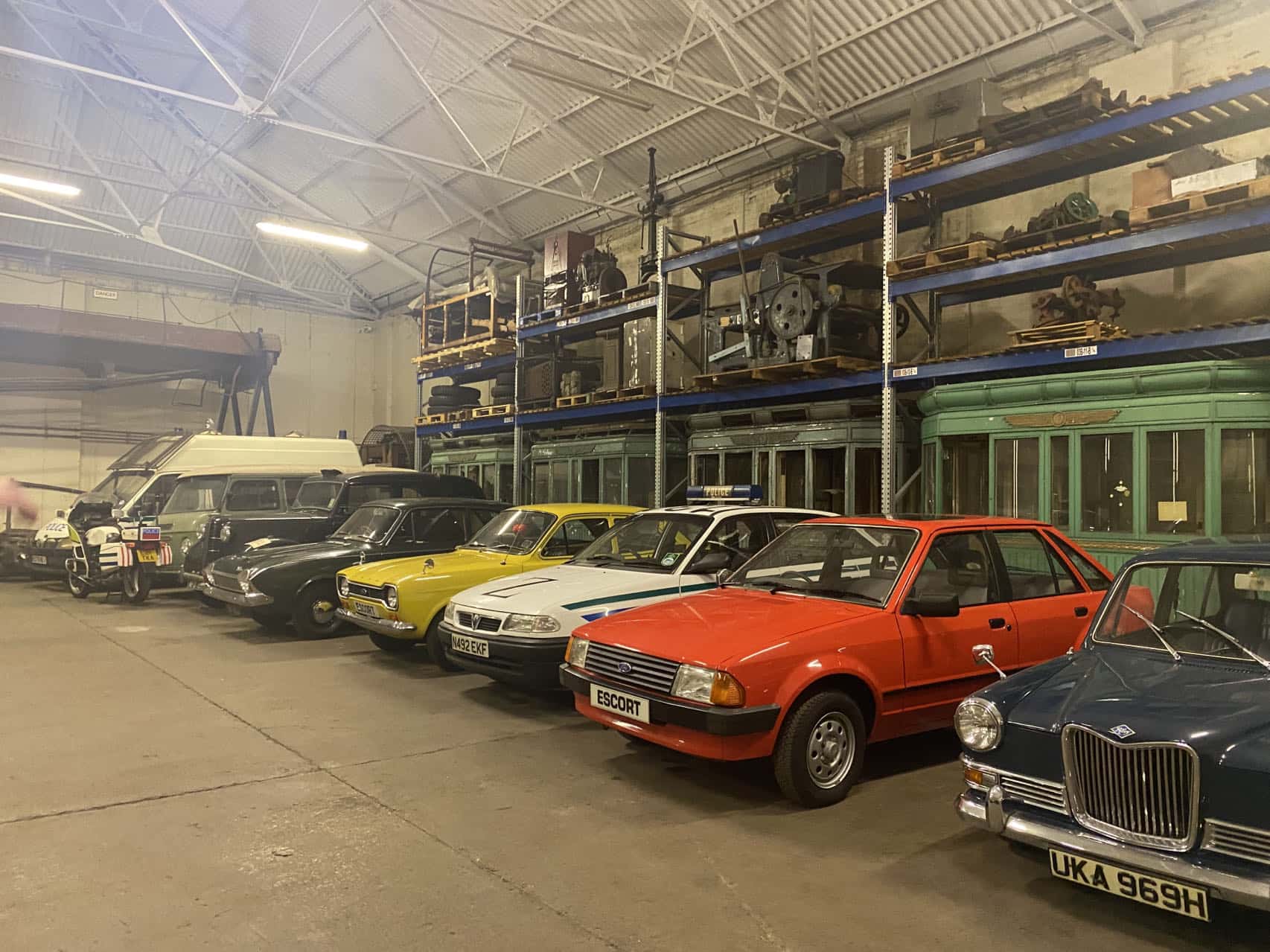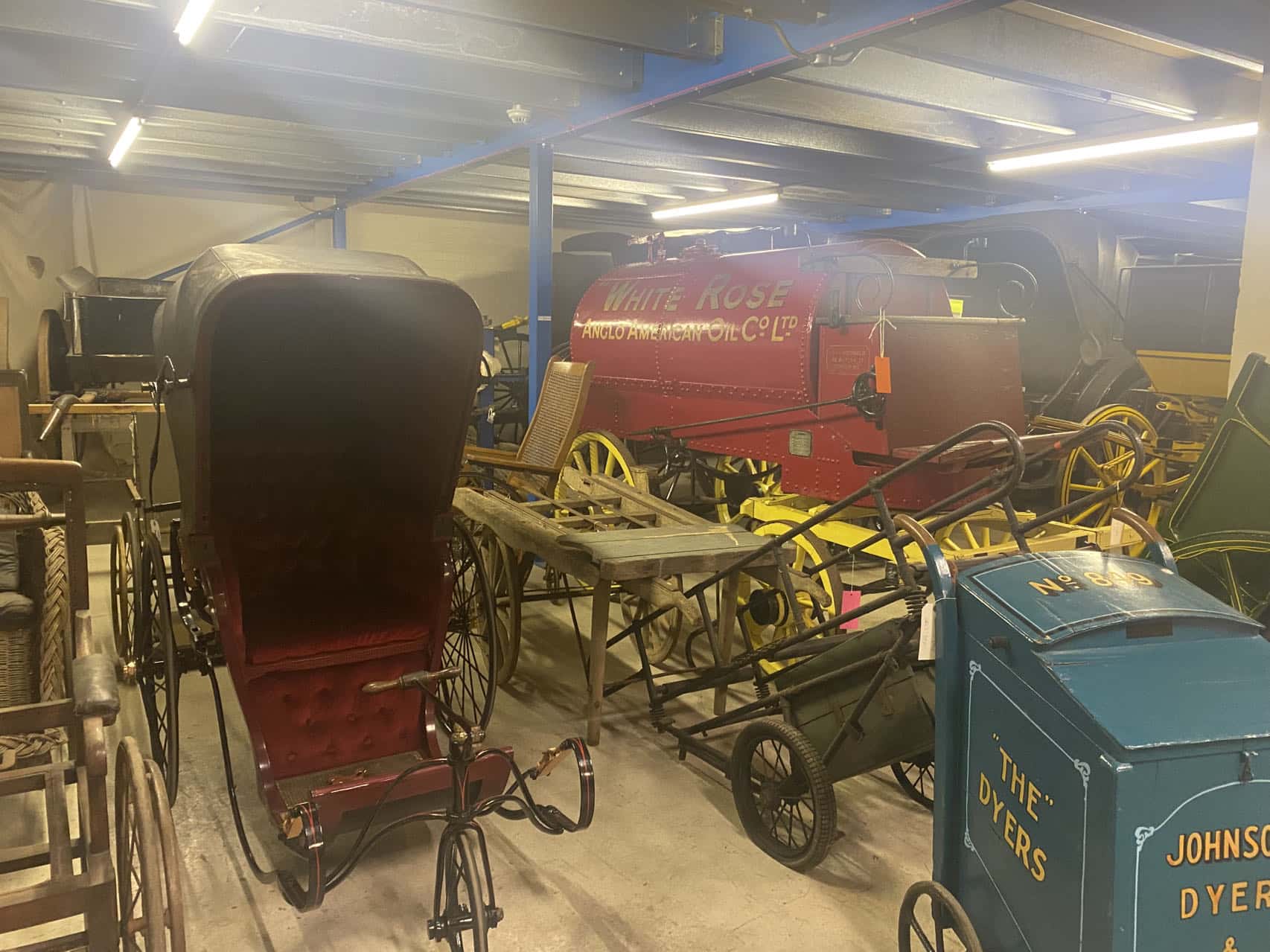Master in Sustainable Heritage Management
Prepare for a career in heritage and conservation management on a programme fully recognised by the Institute of Historic Building Conservation (IHBC). This is the UK’s leading body for building conservation practitioners and historic environment experts.
Course Introduction
This MA challenges you to think about the meanings of heritage. You’ll explore sustainable heritage management in a range of contexts; architectural, urban, social, political, scientific and economic.
We’ll introduce you to the key concepts, principles and practices of sustainable heritage management and examine their application to sustainability, conservation, tourism and regeneration.
You’ll work in partnership with regional, national and international heritage organisations on real-world projects. Gaining practical experience with heritage professionals, you’ll establish valuable industry contacts.
An optional work placement provides the opportunity to gain hands-on experience in a library, museum, historic property, or other cultural setting. Our heritage partners include organisations such as National Museums Liverpool, Liverpool Anglican Cathedral, Slate Museum Wales, Victoria Gallery & Museum and Port Sunlight Village Trust.
Learning from leading heritage academics and practitioners, you can further enrich your studies by getting involved in the activities of relevant research groups. These include the Heritage Theme, the ArCHIAM Centre and the Architectural and Urban History Group.
Who is this course for?
This master’s is suitable for graduates from a range of Arts and Design disciplines, including Architecture, Archaeology, Landscape Architecture, Urban Design, Civil/Structural Engineering, Project Management, Quantity Surveying, and History, who have a passion for heritage and conservation management.
Accreditation
This course is fully recognised by the Institute of Historic Building Conservation (IHBC) – the UK’s leading body for building conservation practitioners and historic environment experts – and covers its areas of competence. The programme also follows the education guidelines of the International Council on Monuments and Sites (ICOMOS), UNESCO and Council of Europe requirements.
As a graduate of a course fully recognised by the IHBC, you’ll be eligible to apply for full IHBC membership after two years of professional experience instead of the usual minimum of five.
Our Graduates
Year 2022
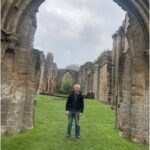 My Contact Email
My Contact Email
What motivated you to pursue this master’s course in sustainable heritage management?
I did not have an opportunity to go to university before my career as a carpenter/ designer. So I started with a Higher National Certificate and then a degree at another university. I wanted to get a post-graduate qualification in heritage management to improve my capabilities as a historic building surveyor. I have always been interested in cultural heritage. The University of Liverpool was a natural choice for me as I live in Mid-Wales, and the course was a great opportunity. I was lucky to be enrolled on the inception year of the Sustainable Heritage Management MA. The intellectual challenge paid off, and I learnt many things that were just theories before. As a result, my abilities are enhanced to a level where I am confident in private – practice.
How would you describe your overall experience studying this master’s course?
I found it challenging and very academic; I expected that and was delighted to succeed. Passing the course is my best achievement so far. I am so pleased to have been involved and appreciated as a scholar.
Were there any opportunities for practical fieldwork, internships, or placement during your studies? If yes, please share your experience and how it contributed to your understanding of heritage management.
I did not opt for the placement in the 2nd semester; instead, choosing for another academic module which enhanced my understanding of the overall context of heritage management.
How did the master’s course in heritage management prepare you for future career prospects in the field?
On the back of the master’s course, I am fulfilling my ambitions as an industry professional. In addition, I now have the confidence and credence I was searching for to develop my career positively in the right direction.
Post-this master programme? Any ideas of what you’d like to do next or what you are doing now?
I have started a limited company called Evolution Heritage, where apart from historic building surveying and heritage management, I am actively involved in research about the dynamic nature of heritage conservation in the built environment. I am developing theoretical structures, which I aim to share through my platform. I am currently marketing the skills that I learnt in the course. I find networking with other industry professionals inspiring and rewarding. My website is: www.evolutionheritage.co.uk
Any advice for others interested in studying this master programme?
Prepare for an epic adventure into the significance and context of tangible and intangible cultural heritage; there is much to discover.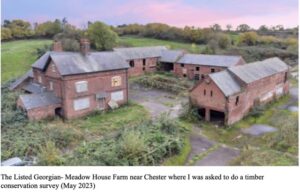
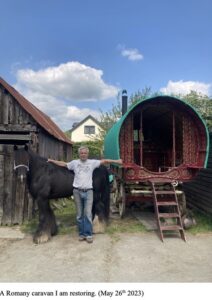
What motivated you to pursue this master’s course in sustainable heritage management?
Before I applied for this course, I browsed the University of Liverpool’s official website to see what its modules consisted of and what options were available. I found the modules on this course to be very well designed and interesting, with the opportunity to learn theoretical knowledge and academic thinking, as well as the opportunity to place. So I think I will really enjoy this course!
How would you describe your overall experience studying this master’s course?
Enjoyable! I have developed very good research and self-study skills during this course. The school and the course have given me a wealth of resources to explore freely in my area of interest.
Were there any opportunities for practical fieldwork, internships, or placement during your studies? If yes, please share your experience and how it contributed to your understanding of heritage management.
Yes, one of our module is professional placement. In this module, we can work with the national museum of Liverpool and be involved in the project of transport heritage design located in birkenhead. During this experience, I met and discussed with many professionals, understood the process of heritage management projects and gave my opinion in the design process.
How did the master’s course in heritage management prepare you for future career prospects in the field?
I had a very full year, I attended classes, worked in groups, completed assignments, attended workshops, participated in placements, wrote my dissertation and communicated with professors and professionals. This experience has greatly improved my general skills in terms of how to promote diversity, express myself, communicate with people and do research, which has provided me with very solid support for my future career development.
Post-this master programme? Any ideas of what you’d like to do next or what you are doing now?
I am in my gap year now, and in September 2023, I will start to work in bank.
Any advice for others interested in studying this master programme?
Interest is always the most important thing.
Year 2023

What motivated you to pursue this master’s course in sustainable heritage management?
Whilst I studied history in my undergraduate degree, I professionally entered the legal profession and have been a qualified lawyer for around 5 years now. However, I still had a passion for history and recognised the importance of culture still in everyone’s day to day lives. I actually saw a tweet from Lucy Worsley and through this started googling these types of master’s courses. The University of Liverpool’s course by Ataa Alsalloum was not only in my home city but also had a focus on sustainability which is paramount in the current climate crisis. Having negotiated a non-working day in my job and feeling I needed to do something else other than the day to day I rang Ataa and asked about the masters and very quickly applied.
How would you describe your overall experience studying this master’s course?
Positive: educational, fun, and informative. The course covered legal, technological, and societal challenges in heritage management giving a holistic approach to the topic. It encouraged students to explore your own case studies and areas of interest whilst providing and IHBC accredited course. This approach enabled students to choose to challenge themselves and play to their strengths in tasks and projects.
How did the master’s course in heritage management prepare you for future career prospects in the field?
The academic element being a given, this masters course enables you throughout to meet with national and international heritage professionals from all sectors who are passionate about their projects and willing to share the realities of heritage management in practice. In the second semester this culminated in the opportunity to go on a semester long placement, and I was lucky enough to be placed with National Museums Liverpool where I focused on energy management. It was fascinating to see the balances that had to be struck in a heritage institution and helped me to understand the internal challenges and balances they need to make in reaching decisions and so I feel more confident in advising a heritage client as I have a greater understanding of their commercial needs.
Post-this master programme? Any ideas of what you’d like to do next?
I will continue with my law career but hope to be able to develop a heritage specialism. I also hope to continue with some academic work on my non-working day and potentially this may lead to a PhD…but let’s see!
Any advice for others interested in studying this master programme?
If you want to work alongside this course, it is possible. Let your lecturers know and Ataa was so supportive and accommodating it made it possible for me to continue to succeed in my day job and in the masters to a high level. But whatever you do, enjoy it and take every opportunity that’s offered to you – there are so many! Be organised to get the most out of it and think about what you are passionate about and pursue it! 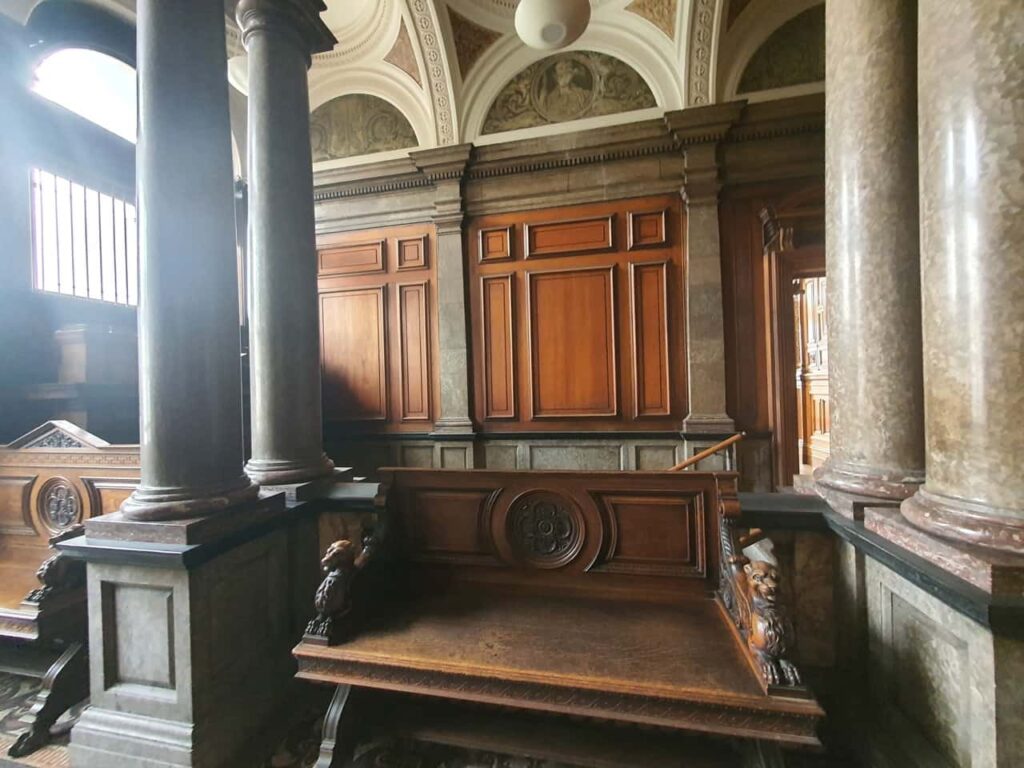
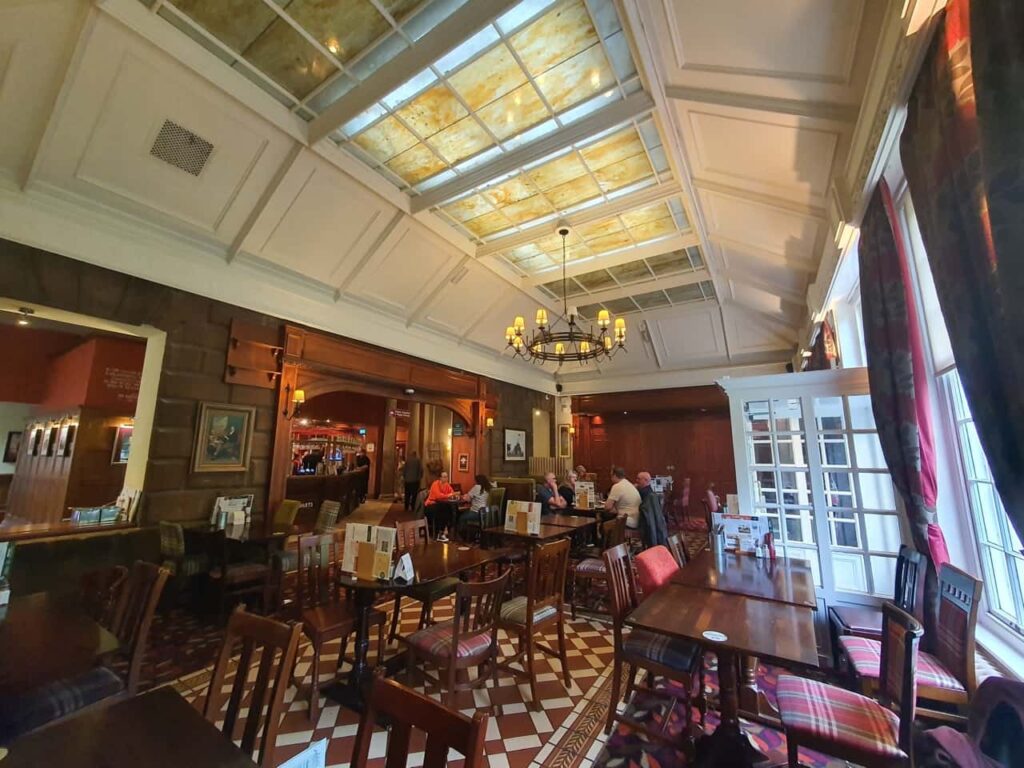
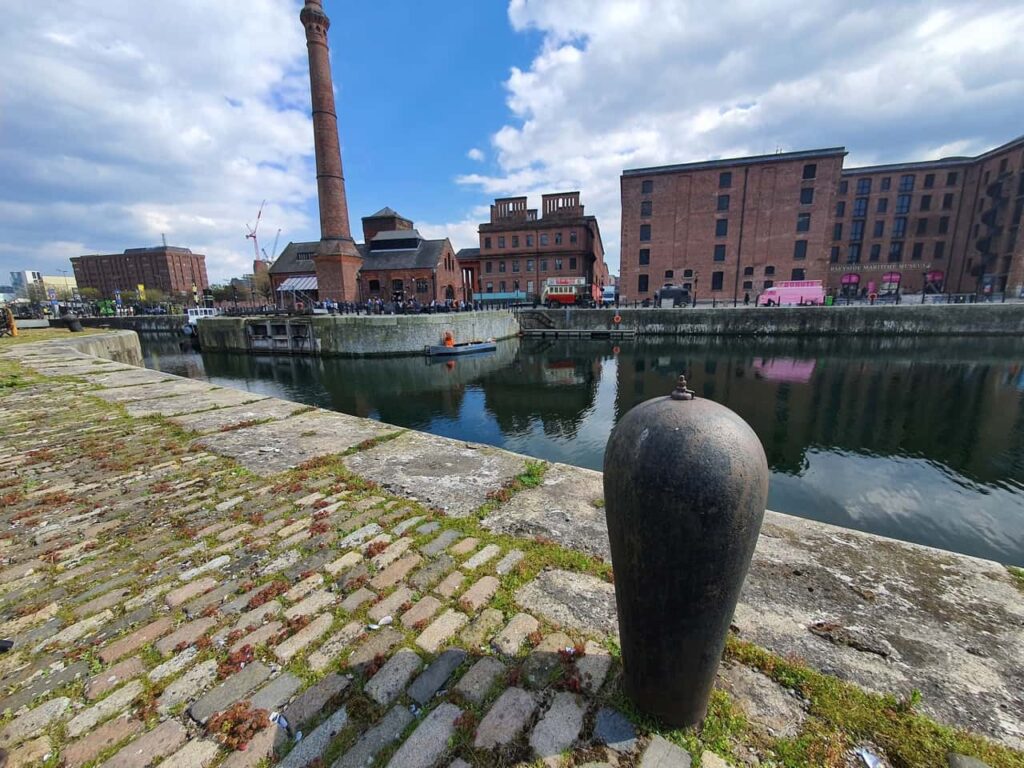
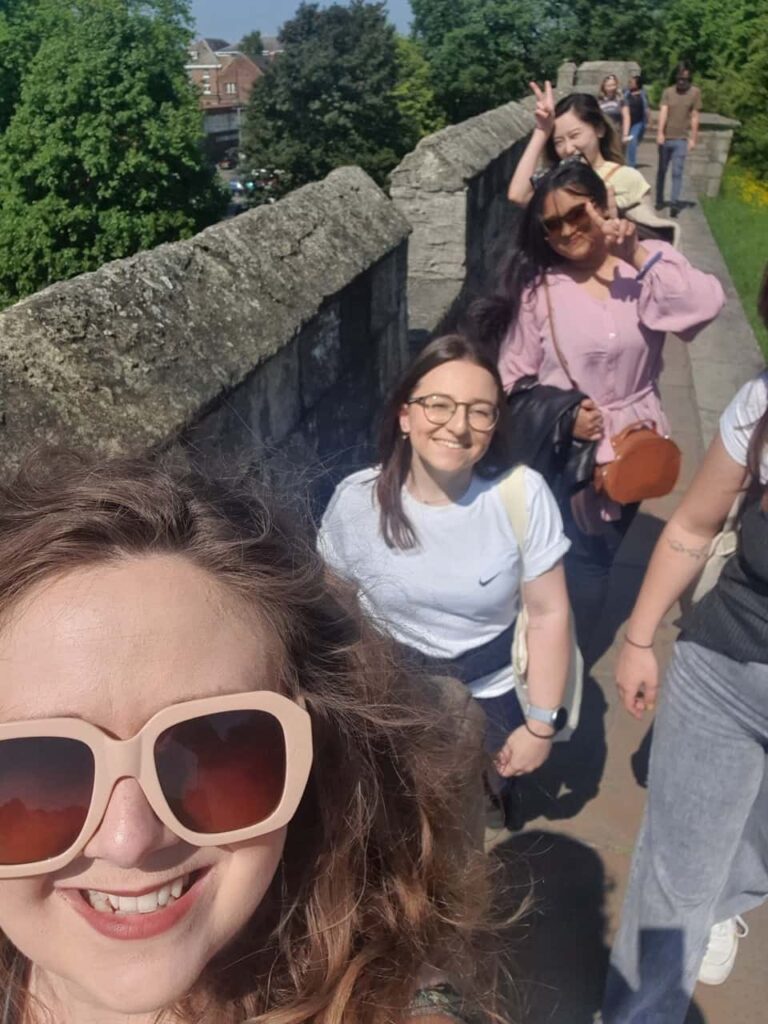
 What motivated you to pursue this master’s course in sustainable heritage management?
What motivated you to pursue this master’s course in sustainable heritage management?
Apart from doing some modules within my undergraduate degree of Archaeology with Ancient History, what motivated me to pursue this course is the way heritage is currently being managed back at home in Gibraltar. My ambition was to take all my newfound knowledge and professional experience gathered from the placement which is offered to students, and adopt a new form of heritage management when if I return home to protect and safeguard Gibraltar’s diverse and historical culture National Museum Liverpool
How would you describe your overall experience studying this master’s course?
My experience studying this course has been more exciting than I anticipated! I have such a great year getting to know all my course mates and lecturers who have been nothing but supportive throughout my studies
How did the master’s course in heritage management prepare you for future career prospects in the field?
It has allowed me to not only develop my research skills, along with others I learnt during my undergrad, but has taught me many new things, as well as allowed me to put this all into practice during a placement at National Museums Liverpool. This in turn has opened up many new doors and future employability opportunities for once I graduate.
Post-this master’s programme? Any ideas of what you’d like to do next?
Upon the completion of this master’s programme, it has allowed me to gain a job back home in Gibraltar as an archaeologist for the local museum which would not have been possible if it had not been for this master’s course
Any advice for others interested in studying this master programme?
I would definitely recommend this master’s programme to anyone who has a particular interest in historical landscapes, despite your undergrad background! This course is so broad, but so specific at the same time so there are modules tailored to almost everyone’s interests.
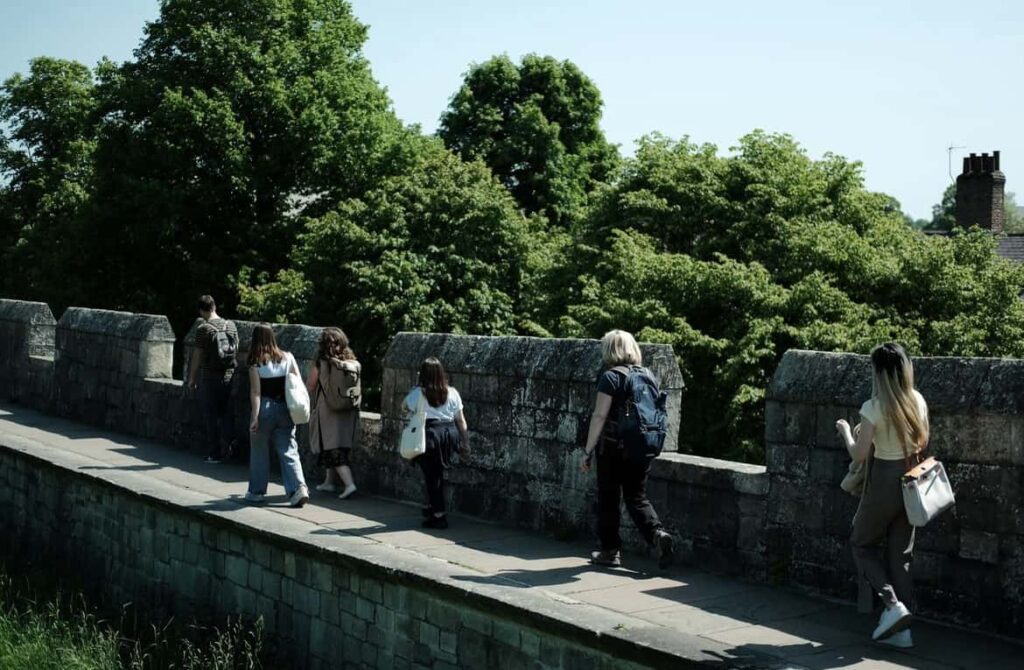
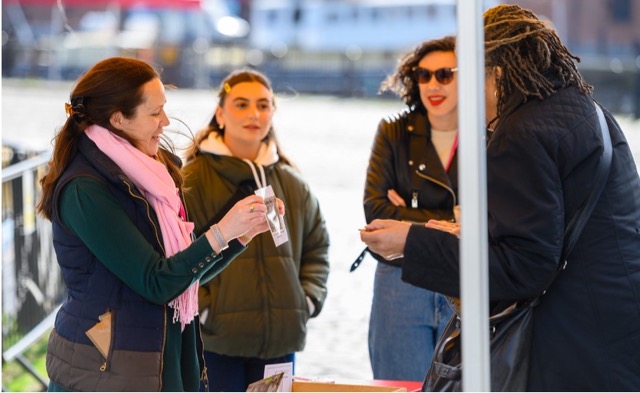

What motivated you to pursue this master’s course in sustainable heritage management?
I am deeply passionate about preserving heritage, which is evident from my undergraduate studies in Restoration of Monuments. I am driven by a strong desire to make a positive impact on sustainable development and have a keen interest in connecting cultural heritage with environmental issues. This interest was also reflected in my dissertation.
How would you describe your overall experience studying this master’s course?
Participating in this MA course has been an incredibly fulfilling and valuable experience. Our coursework encompassed a diverse range of theoretical and practical elements, including case studies and research projects. This comprehensive approach allowed me to develop a well-rounded understanding of heritage management, sustainability principles, policy frameworks, community engagement, and conservation techniques.
How did the master’s course in heritage management prepare you for future career prospects in the field?
Through the multidisciplinary approach of my studies, I am confident that I will have opportunities in diverse sectors such as cultural institutions, museums, heritage sites, government agencies, and consultancy firms. Our program placed a strong emphasis on developing critical thinking, research skills, project management, policy analysis, stakeholder engagement, and sustainability practices. These skills are invaluable for tackling the intricate challenges within the field.
Post-this master programme? Any ideas of what you’d like to do next?
I am currently exploring different career paths to pursue. My plan is to apply for various opportunities in the heritage sector, including positions in architectural offices, conservation roles, and heritage educational sectors.
Any advice for others interested in studying this master programme?
If you have an interest in pursuing a master’s program in heritage studies, I recommend connecting with professionals who are already working in the field. This will provide you with valuable insights and help you understand the practical aspects of heritage management. Additionally, seeking out internships or volunteer opportunities in heritage-related organizations can greatly enhance your understanding of the field through hands-on experience.

What motivated you to pursue this master’s course in sustainable heritage management?
I moved back to the UK after spending my childhood living abroad in Gibraltar to complete my undergraduate degree in archaeology at the University of Central Lancashire. It was during my time on this bachelor’s course that I came to understand the importance of protecting and preserving archaeological sites and soon realised that I had a deep interest in the safeguarding of tangible and intangible heritage. I began researching and exploring the conservation and preservation of historic buildings, collections, and other assets, deciding to extend my knowledge further through this master’s course at the University of Liverpool, in one of the most heritage-rich cities in England.
How would you describe your overall experience studying this master’s course?
My overall experience has been very enjoyable and insightful into different kinds of heritage and what can be done to protect them for future generations. I have learned and experienced so much through its various modules, assignments, and professional placement which I will utilise and apply to my future career.
How did the master’s course in heritage management prepare you for future career prospects in the field?
I have really come to understand the importance of heritage and the influence it can have on local, national, and international levels. I also came to understand the regulations and criteria which need to be met in order to work and preserve heritage assets. The experiences provided through this course such as the placement module, allowed me to put the theory learned on the MA SHM into practice through report writing, meetings, site visits, observations, critical analysis, and research. Through this first-hand experience, I am aware of what is expected of individuals who work within the heritage sector, and the standards enforced at an authoritative level which has prepared me to work at an exceptional standard.
Post-this master programme? Any ideas of what you’d like to do next?
The main goal is to work within the heritage and conservation sector full-time. However, I have managed to secure a part-time position at the National Trust, working at Rufford Old Hall as a collections assistant. This will provide me with great work experience which will allow me to progress within the field. In the future, I may choose to return to academia to pursue a PhD in a relative subject.
Any advice for others interested in studying this master programme?
If you have an interest in heritage management and conservation then definitely consider studying this master’s in sustainable heritage management. This course is a broad overview of how to manage heritage and does not require any specific type of bachelor’s degree to comprehend its content. You will find that you will gain so much more than you would expect.
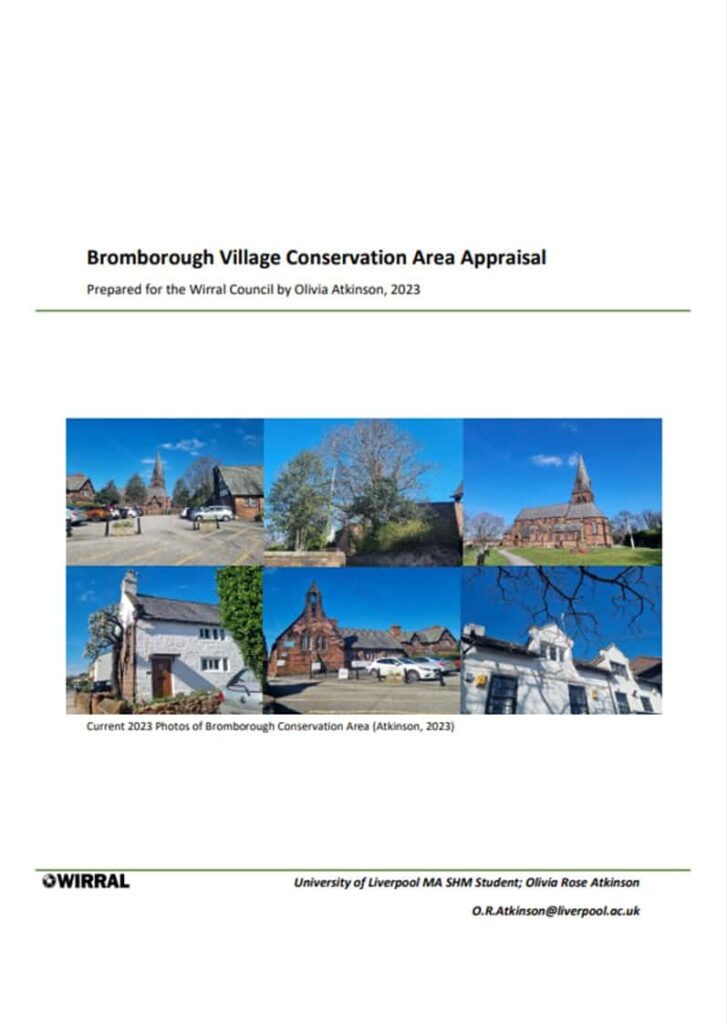
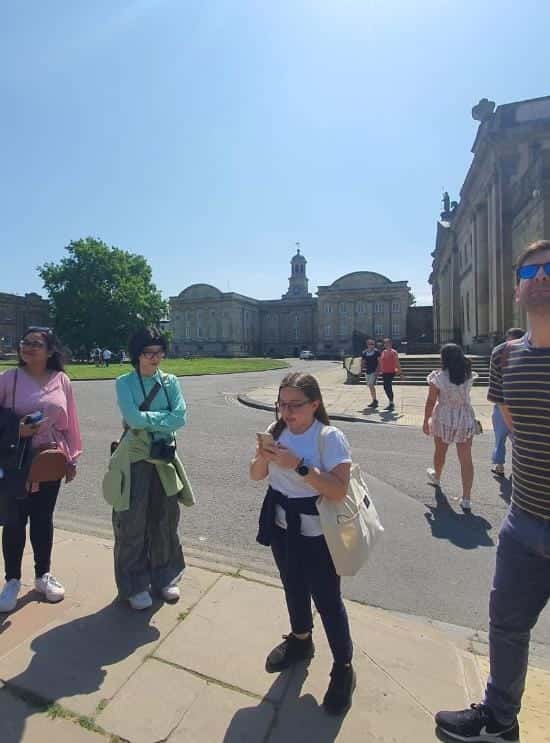
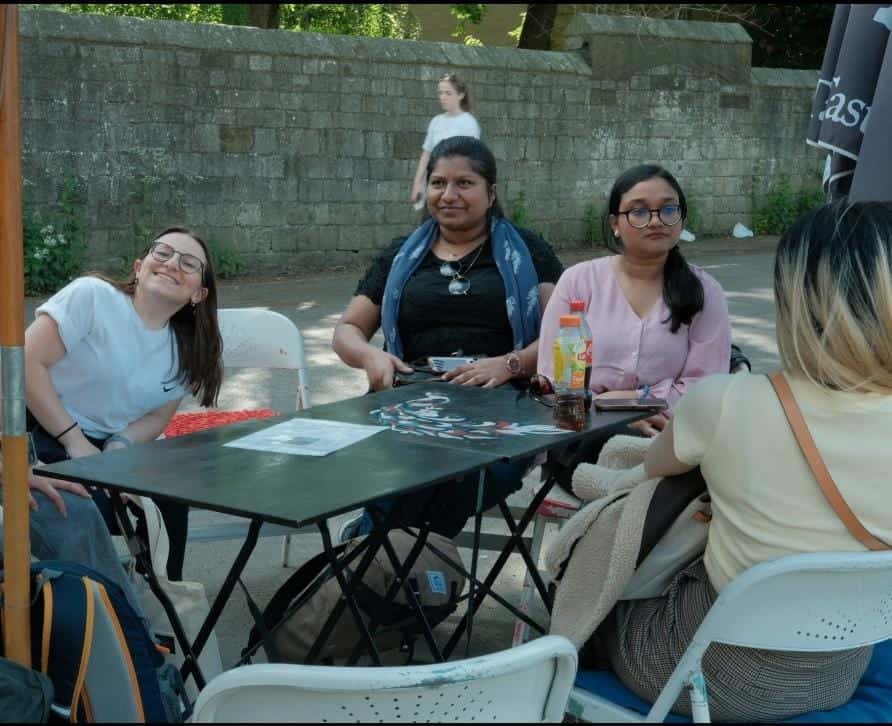
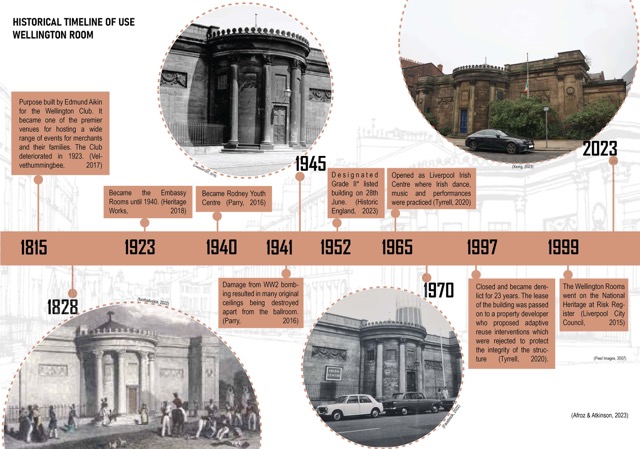

What motivated you to pursue this master’s course in sustainable heritage management?
The decision to pursue a master’s course in sustainable heritage management in the University of Liverpool has been motivated by a confluence of factors, shaped by my personal and academic background. My name is Tamrin Afroz, and I have completed my undergraduate studies in Architecture in Bangladesh. Throughout my architectural education, I developed a keen interest in the preservation and conservation of the historic built environment, which instilled in me a profound appreciation for the significance of heritage management.
The Master’s in Sustainable Heritage Management at the University of Liverpool emerged as the ideal academic pathway for me, owing to its alignment with my prior educational pursuits. Situated within the esteemed School of Architecture, the course encompasses a diverse range of modules, surpassing the narrow confines of traditional conservation-focused programs. Notably, the curriculum extends its purview to encompass topics such as heritage policies & approaches, Islamic architecture, heritage documentation, and urban design, thereby broadening the scope of my knowledge and expertise in the field.
How would you describe your overall experience studying this master’s course?
This program provided a remarkable platform for delving into my area of passion, namely the preservation and conservation of the historic built environment. Engaging in small walk and talk sessions at various historic sites, alongside the city of Liverpool itself, renowned for its historical significance and designation as a formal World Heritage Site, further augmented my experiential understanding of heritage management. The university campus, with its inclusion of listed buildings, created an immersive learning environment, where I could tangibly interact with and appreciate the significance of architectural heritage. I also had an opportunity to work for a student-led magazine for the School of architecture which helped to improve my previous knowledge. Guest lectures by industry experts, workshops, and field trips complemented the coursework, enabling a well-rounded understanding of the field. The university’s strong ties with heritage organizations and professionals offered networking opportunities and insights into the practical aspects of sustainable heritage management.
How did the master’s course in heritage management prepare you for future career prospects in the field?
The inclusion of a placement module within the course structure has been instrumental in solidifying my decision to choose the University of Liverpool. This unique opportunity to engage with the practical aspects of heritage management facilitates a meaningful connection with the professional realm, allowing for a nuanced understanding of the challenges and intricacies associated with heritage conservation in practice. After completing my placement, as I have been offered to continue with my placement organization I believe this will be a great learning experience which will prepare me for the future career prospect.
Any advice for others interested in studying this master programme?
From an academic standpoint, the course was meticulously designed, blending theoretical concepts with practical applications to cultivate a comprehensive skill set in sustainable heritage management. The faculty members, distinguished in their respective fields, fostered an environment conducive to intellectual growth and critical inquiry. Collaborative discussions with fellow students, who shared a common enthusiasm for heritage, further enhanced the academic discourse and expanded my perspectives. I will always encourage others to pursue this master if they are interested in heritage management and my advice would be to think about the career path and choose optional modules according to that as they offer interdisciplinary modules from other departments as well and also to go for the placement as this will boost your confidence when you are applying for jobs.
Post-this master programme? Any ideas of what you’d like to do next?
In general, my experience of studying sustainable heritage management at the University of Liverpool has been truly transformative. The program’s interdisciplinary approach, combined with practical exposure and immersion in a historically rich environment, has deepened my appreciation for the importance of heritage preservation and equipped me with the skills necessary to address contemporary challenges in the field. I leave the program with a sense of purpose and a solid foundation to pursue a fulfilling career in sustainable heritage management, fueled by a continued commitment to the preservation and conservation of our cultural and architectural heritage in the relevant institutions.

What motivated you to pursue this master’s course in sustainable heritage management?
The motivation to get a master degree in sustainable heritage management was from a passion for preserving and safeguarding culture and natural heritage for future generation. This program offers a unique opportunity to combine my interests in heritage conservation, environmental sustainability, and community engagement.
How would you describe your overall experience studying this master’s course?
Through this program, I have learnt a lot, like comprehensive knowledge related to world heritage, practical skills based on professional placement with Port Sunlight Village Trust, and an understanding of the complex challenges faced in heritage management. It was a great experience to study here. Faculty members are professional and giving the best support.
How did the master’s course in heritage management prepare you for future career prospects in the field?
The master’s course in heritage management has equipped me with a comprehensive set of skills and knowledge that are invaluable for my future career prospects in the field. At the outset, the program gave me a comprehensive comprehension of the theoretical and practical elements of heritage conservation, preservation, and management. I came to understand the importance of cultural heritage, its multiple expressions, and the moral implications of safeguarding it. I acquired proficiency in evaluating, documenting, and maintaining heritage sites, artifacts, and collections by completing coursework and participating in hands-on activities. I was educated in ways to preserve, restore, and explain heritage assets with an eye towards their historical environment, involving the community, and being mindful of sustainability. The program enabled me to hone my research, critical thinking, and problem-solving skills. I gained expertise in carrying out thorough heritage evaluations, developing management plans, and implementing successful tactics for preserving and promoting heritage. These skills enable me to address complex challenges in the field and contribute to the sustainable development of cultural heritage resources. Additionally, the program offered hands-on experience through internships, field visits, and case studies. Through these experiences, I was able to practice my theoretical knowledge in real-world situations and acquire practical skills in heritage management. I acquired hands-on knowledge about project organization, financial allotment, potential risks, and stakeholder communication, which are essential for achievement in this industry.
Post-this master program? Any ideas of what you’d like to do next?
I am seeking out chances to gain experience in the field of heritage management on a global scale. I intend to utilize the knowledge and abilities I have gained, coupled with practical experience, to make a meaningful impact in this area. I am enthusiastic to proceed my exploration in the field of heritage management and make a positive effect in safeguarding our plentiful cultural heritage for future generations, whether it be through a career in a heritage institution, the museum business, consultancy, or scholarly investigation.
Any advice for others interested in studying this master program?
Please feel free to join in heritage management if you are passionate about this industry. I was worrying about my unrelated academic background, but it actually was not a problem when I was taking the courses. Structure of this program was designed not only for architects, but also a good transition for all majored students to this field.
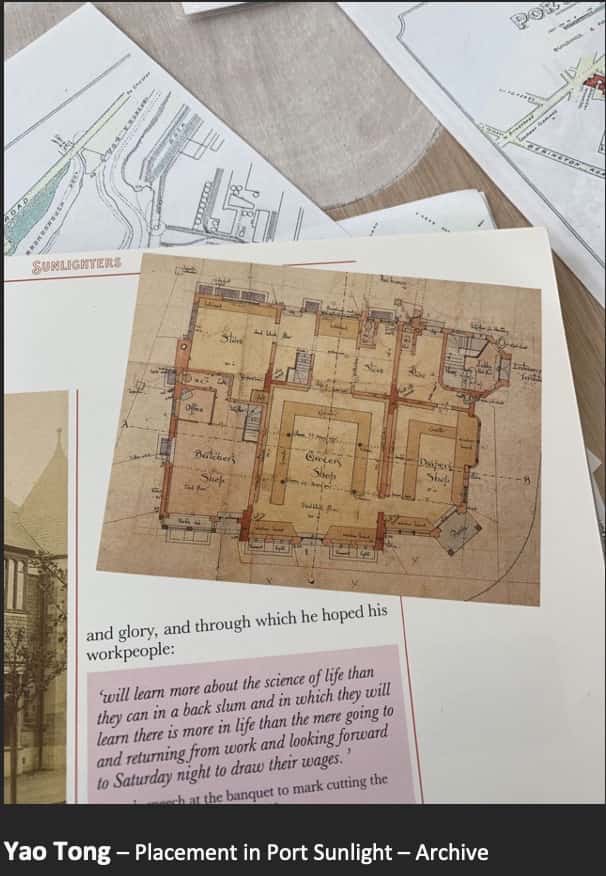
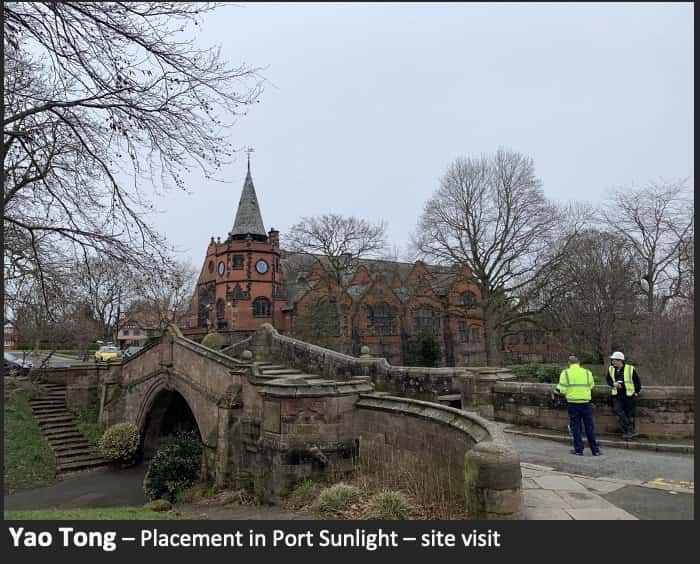
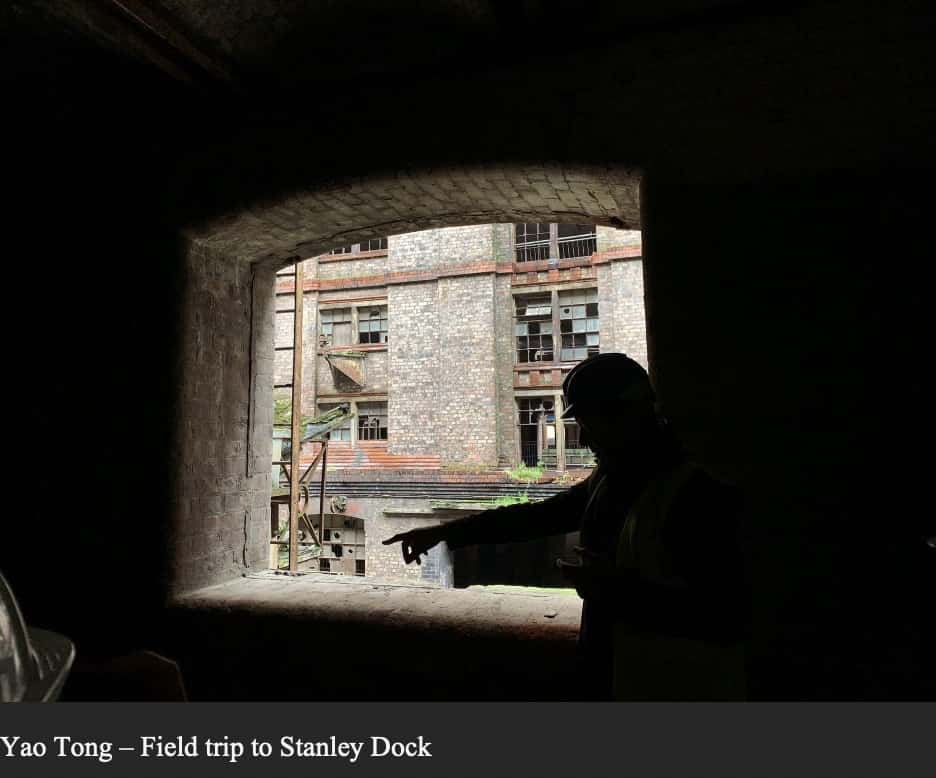
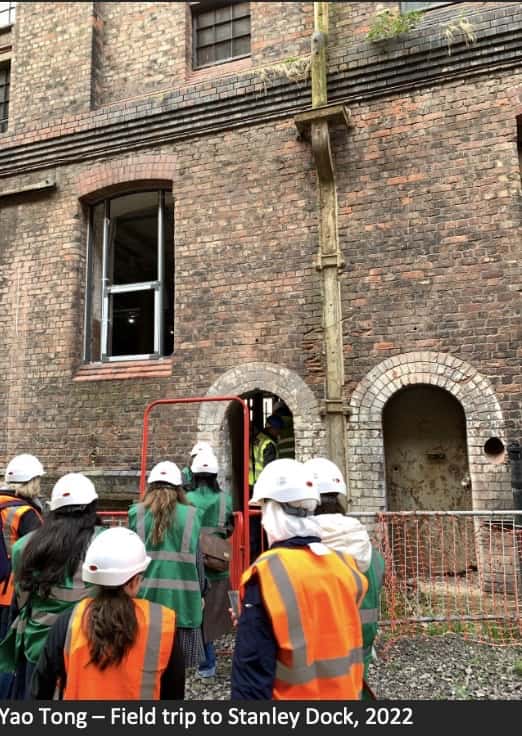
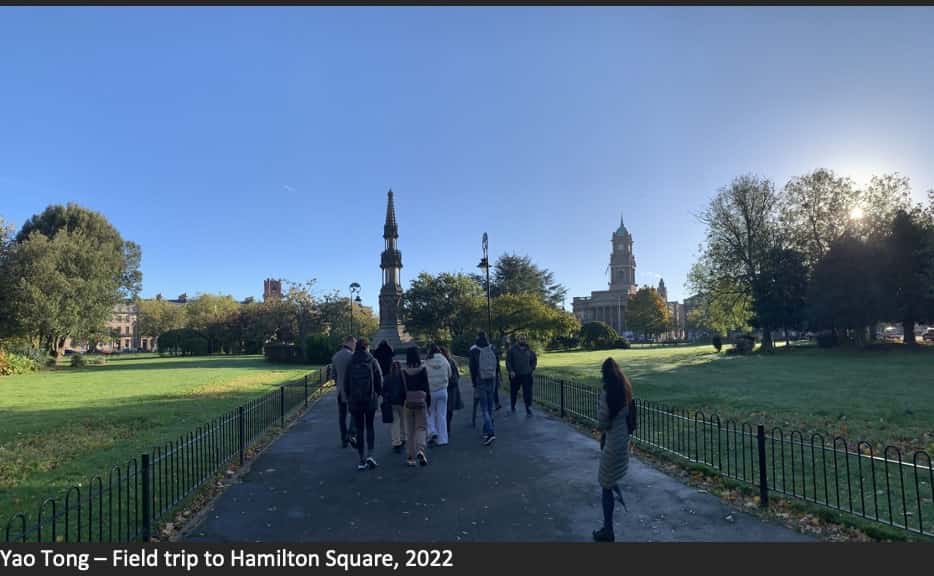

I chose this course because I developed a strong interest in heritage as an undergraduate architecture student in my final year. My final year project is heritage related project. I am passionate about giving historic buildings a new lease of life and believe that preserving our cultural heritage is vital. This master’s course will allow me to deepen my knowledge and skills in this field.
The entire course provided me with a different experience compared to studying architecture. It allowed me to focus more specifically on the conservation and preservation of historical buildings. Collaborating with diverse academic backgrounds classmates helped me develop a comprehensive understanding of heritage projects.
The master’s course also offered a valuable placement experience. This placement opportunity allowed me to gain practical work experience at National Museums Liverpool, where I had the chance to apply the knowledge and skills I acquired during the course to real-world situations. It has also provided me with practical insights into museum curation and also ignited my interest in the intersection of architecture and museology, highlighting the potential for collaboration in creating captivating museum experiences. Witnessing the contribution of architects to heritage conservation has deepened my understanding of the preservation significance of heritage.
Upon completing my master’s program in Sustainable Heritage Management, I am excited to pursue a career uniting my passion for heritage and architecture. I have a strong interest in preserving, conserving, and adaptively reusing historic buildings and sites. One potential path is becoming a Heritage Conservation Architect, where I would design adaptive reuse plans, conduct conservation assessments, and implement sustainable strategies to ensure the longevity of these structures. Another option is working as a Heritage Consultant, offering expert advice on heritage projects, conducting impact assessments, and navigating regulatory frameworks. Additionally, I am drawn to academic research and teaching, exploring innovative preservation techniques, and studying heritage conservation’s social and economic impacts. My goal is to contribute to protecting our built heritage, promoting sustainability, and engaging communities.
